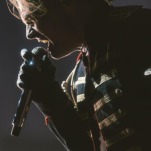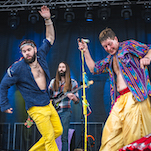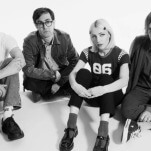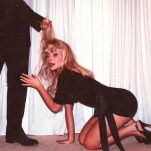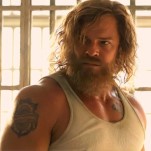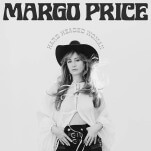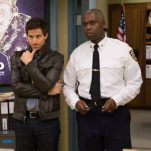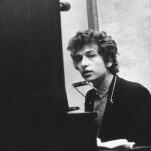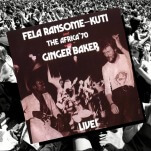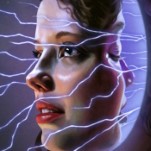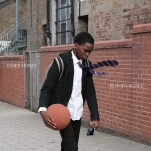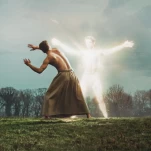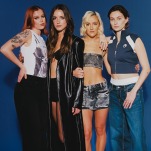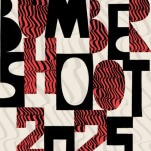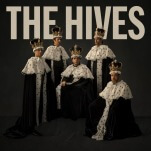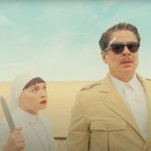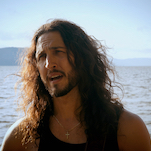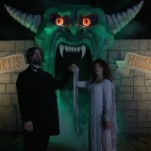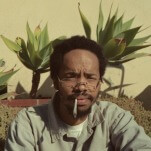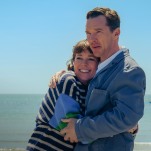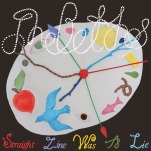John Dieterich Talks Deerhoof, 20 Years and La Isla Bonita
I remember the first time I heard Deerhoof. The song was “Kidz Are So Small” off the band’s bubbly 2007 album Friend Opportunity, and as vocalist Satomi Matsuzaki sang the lyrics “If I were a man and you a dog, I’d throw a stick for you” over a perfectly disjunct beat and some not-so-random dog barks, I fell in love. But that’s not hard to do when it comes to Deerhoof.
The Bay Area quartet started in 1994 as the improvisation project of drummer Greg Saunier and bassist Rob Fisk. Now, 20 years and 12 albums later, Deerhoof hasn’t lost a beat. With a current lineup including Saunier, Matsuzaki—who joined on just a week after having moved to the U.S. from Japan in 1995—and guitarists John Dieterich and Ed Rodriguez, the group released La Isla Bonita earlier this month on Polyvinyl. Since then, the band has proven (at least) two things: Even after two decades, Deerhoof has stayed true to its distinct sound, and it’s still kind of impossible to put a finger on just what that sound is.
While La Isla Bonita could be looked at a return to the band’s early days, with guitar-driven tracks and an undeniable charm, it’s also intricately woven and pure. As Dieterich puts it, “we just intentionally removed all pressure from it.” And that may be the thing about Deerhoof—it’s not like they’ve ever really recorded an album through traditional methods.
Deerhoof has always been at the forefront of DIY culture, from their early singles being birthed on four-track cassette to most of 2003’s Apple O’ being recorded live over a short nine hours and Friend Opportunity starting as a Dieterich bedroom recording and continuing to be mixed on laptops over the course of a tour. Over the years, they’ve stayed true to low-budget recording techniques, self-taught instrumentation and minimal gear.
Of course, with 20 years behind them, they’ve been through their fair share of changes. Having always called San Francisco home, Deerhoof’s members moved to various cities across the country after recording their 2011 album, Deerhoof vs. Evil. Their commute to band practice is now considerably longer—Saunier and Matsuzaki are in Brooklyn, Dieterich in Albuquerque and Rodriguez in Portland—but their devotion to the band has never waned. In fact, La Isla Bonita may have not turned out the same without it.
Recorded over 10 days in Rodriguez’s basement, La Isla Bonita came about as naturally as an album can and seems almost like a 10-song catharsis for the band.
“We went to Ed’s house to practice,” Dieterich says, laughing. “We weren’t planning to record.”
Once producer Nick Sylvester added vocals in May, the album really came to life. And while Matsuzaki’s words are often far-out and always charming, they’re not just wacky. La Isla Bonita even brings political notes to the table—whether it’s the subtle ode to female musicians in “Paradise Girls,” the beautifully eerie “Mirror Monster” or the repetition of the line “too many choices to order breakfast” in “Exit Only,” a line that’s well-disguised in a cheerful rock ballad all the while speaking to everything from America’s consumer culture to immigration. That’s good stuff.
Really, though, no matter how they create an album, Deerhoof remains Deerhoof, and it shouldn’t be any other way—at least for the next 20 years.
Earlier this week, Paste caught up with Dieterich on tour and chatted about everything from the Deerhoof family and songwriting to soccer and working with Michael Shannon.
Paste: You guys are in San Francisco, right? I bet it’s good to be back.
John Dieterich: Yeah, it’s great. We had a fun show last night at Great American Music Hall, and we hadn’t played there in a while. It was good.
-

-

-

-

-

-

-

-

-

-

-

-

-

-

-

-

-

-

-

-

-

-

-

-

-

-

-

-

-

-

-

-

-

-

-

-

-

-

-

-



